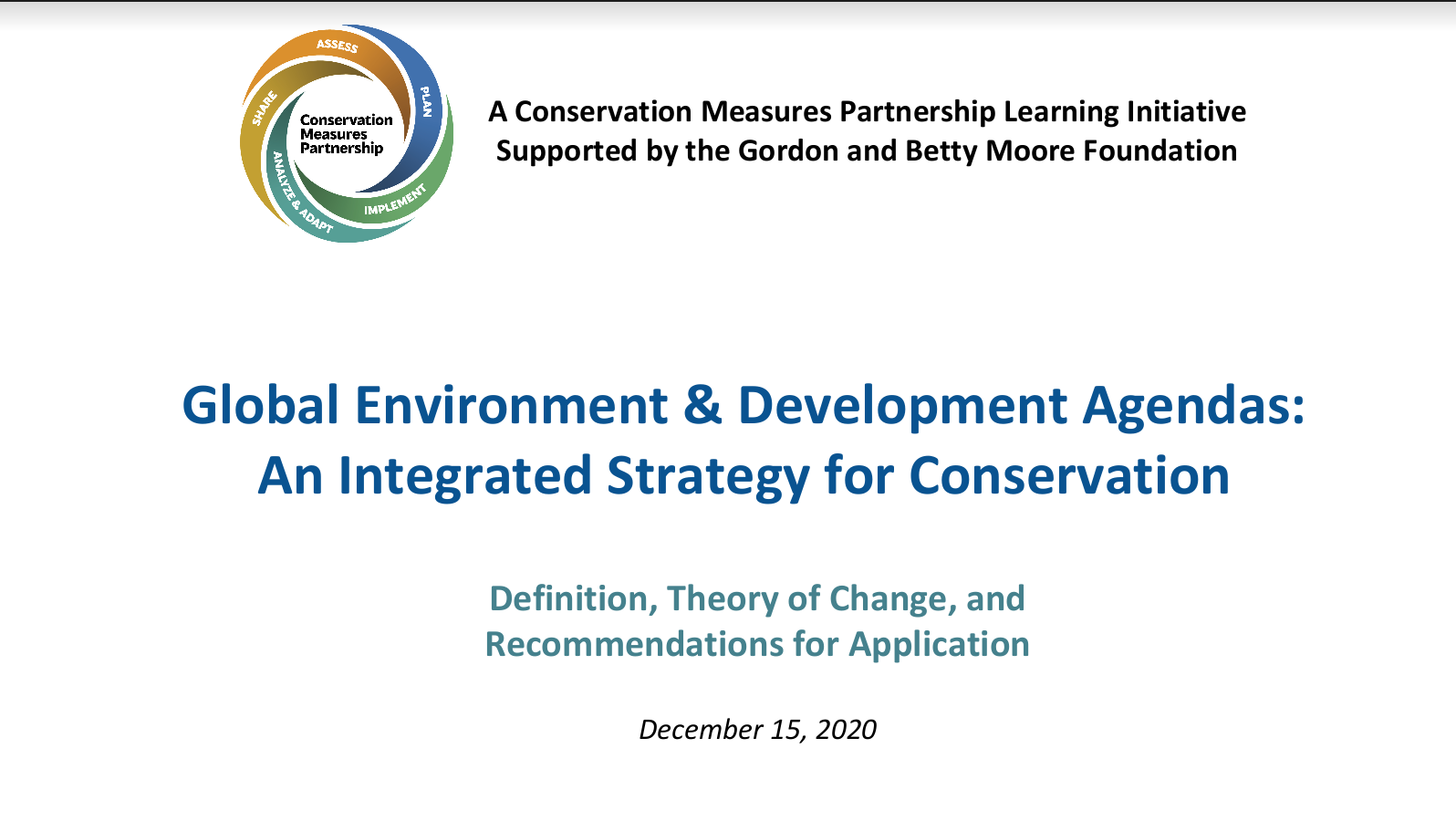Over the last few years, as the CMP Climate Guidance Working Group has developed Climate-Smart Conservation Practice, a few organizations in the Conservation Standards community have applied different parts of...
The Swedish Agency for Marine and Water Management and FOS Europe have developed a framework and a 10-step method for tackling the big challenges in marine conservation. The framework contains definitions,...
This draft "Toolkit" provides a series of "recipes" for "lighter" Conservation Standards (CS) approaches to different scenarios that teams typically encounter. The recipes link to tip sheets that offer practical ideas...
Nature-based Solutions (NbS) is an approach to addressing environmental and development challenges through protecting, maintaining, and enhancing ecosystem services. As part of CMP's Collaborative Learning Initiatives, Australian NGO TierraMar researched...
Phase I of this learning initiative highlighted the need for the conservation community to continue learning about how to incorporate diversity, equity, inclusion and justice (DEIJ) principles into their conservation...
The purpose of the PHE Learning Initiative was to improve CMP's and, more broadly, the conservation sector's understanding of PHE and its value to biodiversity conservation, to identify barriers that...
These factsheets are intended to provide a high-level summary of what situation models / results chains are, how they are developed and how to read them. The target audience is...
CapeNature, the conservation authority for the Western Cape Province, South Africa, initiated a process in 2017 to strengthen adaptive management of the protected areas under its management. Management plans strive...
Collaboratively developed by partners from Quebec, Canada and beyond, this resource builds off of CMP’s threats classification to provide a more detailed, third-level classification, and will provide several benefits :…
Translate »

